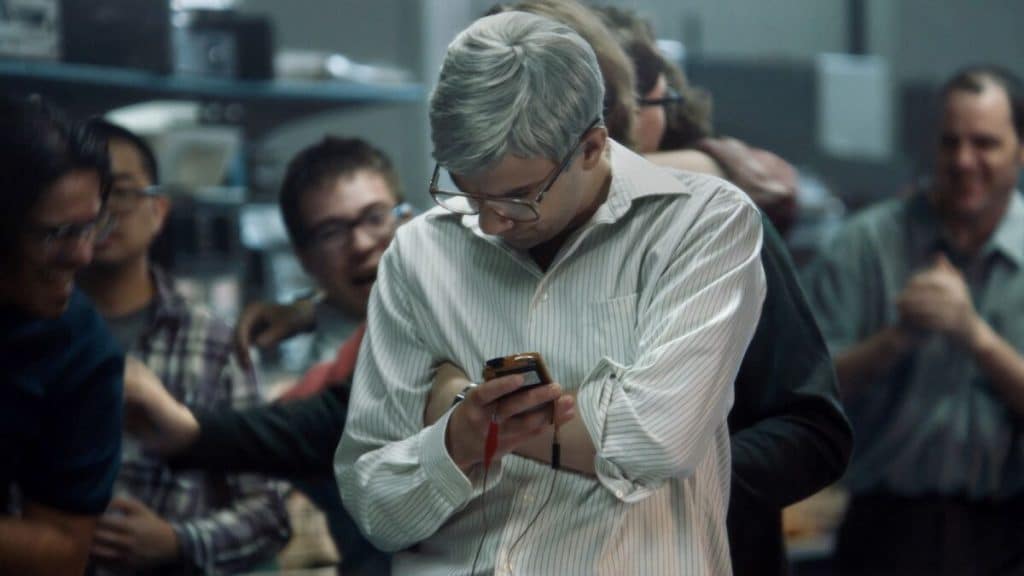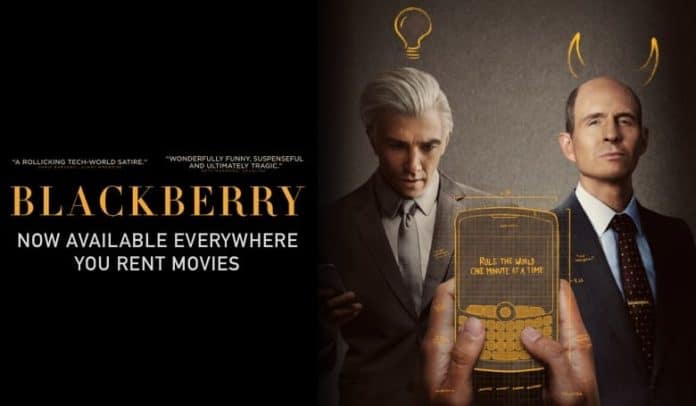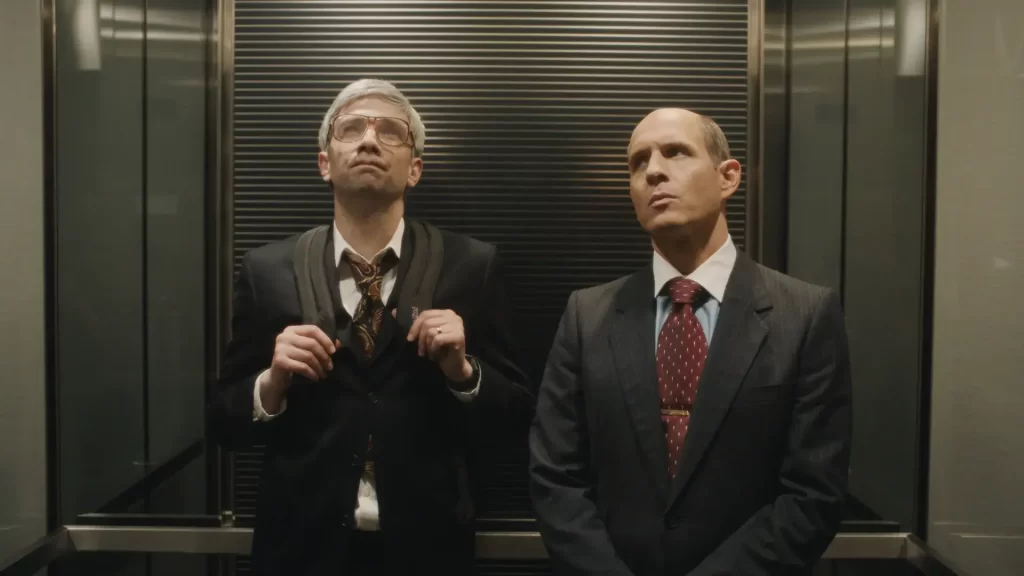Blackberry Ending, Explained – Director Matt Johnson‘s film “Blackberry,” chronicling Research in Motion’s journey under Mike Lazaridis and Douglas Fregin’s leadership, depicts their struggles as co-founders of Research in Motion. At various points in the movie, Mike Lazaridis expresses concerns that Blackberry will become overshadowed and forgotten as its competition intensifies – leading us to question whether its decline could only be blamed on competition alone or whether internal tensions and strategic decisions contributed as well.

BlackBerry Plot Synopsis
Mike Lazaridis and Douglas Fregin initially approached Jim Balsillie at his Sutherland and Shultz office to present their idea, hoping to gain his interest. Unfortunately, Balsillie seemed disinterested; yet fate led him down an unexpected path, eventually joining Research in Motion, now known as Blackberry Limited.
Balsillie was driven by his unwavering commitment to making significant and rapid progress, taking risks, and making sacrifices to make this happen. Even mortgaging his home to ensure all employees were paid. Balsillie set forth with great zeal to achieve his goals by changing Mike and Doug’s perspectives about business operations.
Unfortunately, Mike’s agreement with US Robotics did not go according to plan and left an unsold modem surplus valued at $1.6 million. Balsillie attempted to negotiate with Carl Yankowski, but he insisted on acquiring all the modems for free in exchange for Mike’s mobile phone patent development patent. Additionally, Balsillie discovered US Robotics was planning on launching their own phone, prompting him to urgently request a prototype from Mike immediately despite an estimate by Mike that this process would take one year – as meeting Bell Atlantic’s John Woodman scheduled on this very day, Balsillie insisted upon needing it immediately despite having taken charge.
Mike managed to overcome these constraints to develop a simple demonstration device that effectively demonstrated John Woodman’s concept. By 2002, an innovative product capable of email transmission and phone functions had hit the market and quickly became a global sensation.
BlackBerry Ending Explained
Mike remains unmoved by Apple’s revolutionary introduction of the iPhone despite its obvious threat to his business, instead choosing to concentrate on developing his product concept for phones with integrated trackpad keyboards. Mike finds it hard to accept that another visionary in the industry may try and surpass him; furthermore, their respective launch dates were so close together.
Mike strongly rejects the iPhone’s touchscreen feature as being insignificant and lacking appeal, believing instead that users prefer tactile feedback provided by traditional BlackBerry keyboards for satisfying tactile feedback, and phone users would not consider phones without such features as attractive. When presenting his product to Verizon board members after watching an iPhone presentation, however, Mike was met with disappointment from board members; outrage ensued as Mike made unfounded claims regarding their identical touchscreen invention, and John Woodman voiced his displeasure by drawing comparisons between BlackBerry and the iPhone.
Mike refuses to abandon his beloved BlackBerry keyboard and incorporates it into his design, satisfying the demand for tactile clicks. To accommodate this need, Mike recommends the BlackBerry Storm phone, which combines a display and physical keyboard into one package. In a rush of activity, Mike arranges for prototype creation at the RIM office before authorizing production in China despite his strong opinions against Chinese manufacturing processes he perceives as consistently inferior. The film explores Mike’s resistance to Chinese production, which he considers inferior.
Aware of Chinese production realities, Doug attempts to convince Mike to reconsider, but his efforts are ignored, leading him to part ways with RIM. After months of preparation and release of RIM’s BlackBerry Storm phone, one unit emits a minor buzzing noise due to subpar production, indicating quality control issues that cause RIM’s product to fall behind Apple’s iPhone in competition.
What Prevented US Robotics from taking over Blackberry?
At a brainstorming session for a new smartphone, Mike and Jim discussed ideas when Carl Yankowski suggested merging Palm Pilot and Blackberry devices into one device. Though Mike might have considered this proposal at first, Carl made clear he would have the final say over any technical decisions regarding its creation; due to past interactions and given that Mike had endured significant losses because Carl refused to buy modems from them directly, it became evident he no longer desired conducting business with Carl.
Carl was unabated in his determination. He threatened a hostile takeover bid to purchase shareholders’ shares and force out current management. Jim realized Carl’s threat was no mere bluster: without immediate steps taken against him acquiring shares, Carl may succeed in doing just that. Mike and his colleagues helped Verizon accommodate an increase in phone sales by reconfiguring its towers to hold two million Blackberry phones simultaneously, thus averting US Robotics’ planned takeover bid. Carl overestimated Jim and Mike’s capabilities and undervalued them accordingly – something similar happened during his modem purchase transaction. Carl ultimately lost everything due to overconfidence and underestimation, leading to Carl’s downfall, as was evident by Carl’s behavior when purchasing modems from them.
However, despite successfully staving off a hostile takeover attempt, internal conflicts remained an ongoing source of contention within the corporation. Jim held an opinion of Doug which led him to decide not to remain with the company when Charles Purdy was named COO by Jim. Though Mike served as an intellectual leader, Doug played an essential role in creating an engaging work environment and keeping employee morale high; eventually, however, Mike informed Doug his services were no longer required, and though saddened at this decision, Doug understood he couldn’t continue working for an entity that had no place for him at least four of his best qualities in mind.
Must Read: Will There be Barracuda Queens Season 2 on Netflix?
















